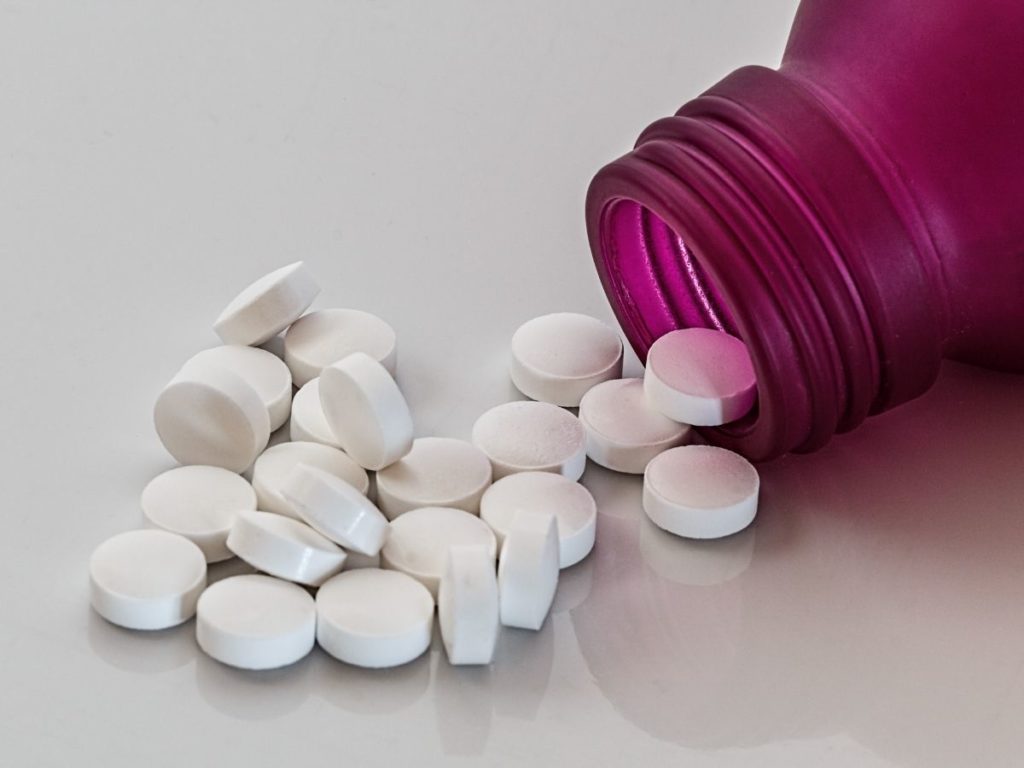What is Lexapro?
Lexapro is a commonly prescribed antidepressant that should be used with caution if mixed with alcohol. Not only can alcohol worsen your mood or anxiety, but combining Lexapro and alcohol might also lead to potentially dangerous side effects.
How Lexapro Works
Lexapro is the brand name for the generic drug escitalopram oxalate. It’s a selective serotonin reuptake inhibitor (SSRI) that is commonly used to treat generalized anxiety disorder, depression, and other mental health disorders.
It works by blocking the reuptake of serotonin, the neurotransmitter that affects a variety of functions in the body and mind. It helps balance out brain chemicals that contribute to anxiety and depression. SSRIs are among the safest classes of antidepressants, so they’re frequently prescribed. But this doesn’t mean Lexapro is completely risk-free. And combining Lexapro and alcohol could increase your risk of problems.
Mental Health Issues and Alcohol Use Disorder
Alcohol and depression sometimes go hand in hand. And there’s the age-old question of which to treat first? Well, most researchers and clinicians currently suggest that alcohol use disorder and depression should be treated at the same time.

According to the Diagnostic and Statistical Manual of Mental Disorders (DSM), symptoms of an alcohol use disorder include:
- Difficulty limiting the amount of alcohol you consume
- Wanting to cut down on how much you drink or making unsuccessful attempts to drink less
- Spending a lot of time drinking, getting alcohol, or recovering from alcohol use
- Feeling a strong craving or urge to drink alcohol
- Failing to fulfill obligations at work, school, or home due to alcohol use
- Continuing to drink alcohol even though it’s causing physical, social, legal, or relationship problems
- Giving up or reducing social activities, work activities, or hobbies
- Using alcohol in situations when it’s not safe, such as swimming or driving
- Developing a tolerance to alcohol so you need more to feel its effects or you have a reduced effect from consuming the same amount
- Experiencing withdrawal symptoms, such as nausea, sweating, and shaking when you don’t drink, or drinking to avoid these symptoms
A common way depression is treated is with antidepressant medication. But if alcohol intake isn’t addressed, medications like Lexapro might not be effective. Research shows that heavy drinking can counteract the benefits of antidepressant medication. Therefore, prescribing antidepressants may not reduce depressive symptoms in individuals who continue to drink.
However, when people begin taking SSRIs to feel better, they may tend to drink less. One study showed that the use of antidepressants decreased alcohol consumption in depressed men for a year. However, when treating someone who has an alcohol use disorder, a physician who decides to prescribe Lexapro may also recommend talk therapy or as part of the overall treatment plan.
If a patient is actively drinking heavily, a physician may recommend a detox program to address alcohol withdrawal symptoms or a rehabilitation program before prescribing an SSRI. In some cases, medication-assisted therapy can also be an option. For example, naltrexone as the oral medication Revia or in the long-acting injectable form of Vivitrol might be prescribed to help reduce alcohol cravings.
Lexapro and Alcohol
Of course, not everyone who takes Lexapro and alcohol will have an alcohol use disorder. Some individuals who are taking Lexapro may want to drink in moderation or enjoy an occasional alcoholic beverage.
This doesn’t mean that taking Lexapro and alcohol is completely safe. Caution needs to be used as combining the two can lead to drowsiness and impaired alertness. In addition, if you’re being prescribed Lexapro, it most likely means you have a mental health condition, like anxiety or depression. In general, it’s not recommended that individuals with mental health issues consume alcohol as it can worsen these conditions.
According to the FDA, clinical trials have not found that Lexapro worsens the motor and cognitive effects of alcohol. But they also report that alcohol use while on Lexapro is not recommended. Taking Lexapro and alcohol might increase your risk for serious side effects. It’s also important to talk to your doctor before drinking alcohol when you are taking any medication.
Drinking alcohol in an attempt to cope with depression can also increase the likelihood that you’ll develop an alcohol use disorder. Drinking could also potentially damage your liver, the organ responsible for breaking down substances, medications, and toxins, further impacting how your body handles these.

Lexapro and Alcohol Interaction
Mixing Lexapro and alcohol will affect each person differently. The dosage you take may also play a role. Those who take the maximum dosage for depression (20mg of Lexapro) may be at an even higher risk of experiencing side effects or complications from drinking alcohol.
Taking Lexapro and alcohol may cause:
- Increased anxiety
- Decreased effectiveness of Lexapro
- Increased depression
- Liver problems
- Drowsiness
Alcohol could also increase the risk of side effects from the Lexapro. And side effects might become more severe when mixing Lexapro and alcohol. Side effects may include:
- Nausea
- Insomnia
- Dry mouth
- Diarrhea
- Sleepiness
There is some evidence that antidepressants like Lexapro might lead to an increase in suicidal thoughts and behaviors, particularly in children, adolescents, and young adults. It’s most likely to occur during the first few months of treatment or when a physician changes the dosage. Since alcohol can worsen depression, drinking while on Lexapro may increase this risk even more.
Talk to Your Doctor About Mixing Lexapro and Alcohol
If you’re interested in starting Lexapro, be honest with your physician about your drinking habits. Lexapro is usually taken over a long time, so it’s important to discuss how often and how much you usually drink.
Your doctor may tell you to avoid alcohol altogether while you’re on Lexapro, or they may say that it’s fine to have a drink from time to time. Everyone’s situation is different, and your doctor will advise you on what’s best in your circumstance.
Symptoms of Alcoholism
As stated by the National Institute on Alcohol Abuse and Alcoholism, these are the signs to be aware of in terms of this condition:
- Appearing intoxicated more regularly
- Appearing tired, unwell, or irritable
- An inability to say no to alcohol
- Becoming secretive or dishonest
- Drinking more, or longer than one intended
- Want to cut down or stop drinking, or tried to, but haven’t been able to do so
- Spending a lot of time drinking, being sick, or getting over the aftereffects
- Experiencing craving, a strong need, or an urge to drink
- Founding that drinking, or being sick from drinking, often interferes with taking care of your home or family, job troubles, or school problems
- Continuing drinking even though it was causing trouble with family or friends
- Giving up or cutting back on activities that are important or interesting to you, to drink
- More than once gotten into situations while or after drinking that increased your chances of getting hurt (such as driving, swimming, using machinery, walking in a dangerous area, or having unsafe sex)
- Continuing to drink even though it was making you feel depressed, anxious, or adding to another health problem, or after having had a memory blackout
- Having to drink much more than you once did to get the effect you want. Or finding that your usual number of drinks has much less effect than before
- Finding that when the effects of alcohol are wearing off, you have withdrawal symptoms, such as trouble sleeping, shakiness, irritability, anxiety, depression, restlessness, nausea, or sweating.
Alcoholism Treatment
When it comes to Alcoholism treatment, it is customary to think of 12-step programs or 28-day inpatient rehab, but it becomes difficult to think of more options of treatment for this condition. There are a variety of treatment methods currently available. According to the National Institute on Alcohol Abuse and Alcoholism, there are three types of treatment:
- Behavioral Treatments for alcoholism: are aimed at changing drinking behavior through counseling. They are led by health professionals and supported by studies showing they can be beneficial.
- Medications for alcoholism: Three medications are currently approved in the United States to help people stop or reduce their drinking and prevent relapse. They are prescribed by a primary care physician or other health professional and may be used alone or in combination with counseling.
- Peer-Support Groups for alcoholism: Alcoholics Anonymous (AA) and other 12-step programs provide peer support for people quitting or cutting back on their drinking. Combined with treatment led by health professionals, mutual-support groups can offer a valuable added layer of support. Due to the anonymous nature of mutual-support groups, it is difficult for researchers to determine their success rates compared with those led by health professionals.

Reclaim Your Life From Lexapro and Alcohol Use Disorder – Dual Diagnosis Rehab Washington
Lexapro is a commonly prescribed antidepressant that should be used cautiously if mixed with alcohol. Not only can alcohol worsen your mood or anxiety, but combining Lexapro and alcohol might also lead to potentially dangerous side effects. If you suffer from alcoholism, you might have difficulties stopping drinking while taking Lexapro.
Alcoholism is a serious disease that should not be taken lightly. We Level Up Dual Diagnosis Rehab Washington can provide you, or someone you love, the tools to recover from alcoholism with professional and safe treatment. Feel free to call us to speak with one of our counselors. We can inform you about this condition by giving you relevant information. Our specialists know what you are going through. Please know that each call is private and confidential.
We Level Up Washington Mental Health Center: Primary Mental Health Treatment with Secondary Co-Occurring Treatments
The We Level Up Washington primary mental health center stands ready to help. Offering secondary treatment programs for underlying conditions like Lexapro and Alcohol addiction that frequently fuels harmful behaviors. Taking that first step to get the professional support you need can be life-transforming.
We know how mental health disorders and secondary co-occurring substance abuse diagnoses directly affect one another. The We Level Up Washington treatment center provides recovery programs through science-based mental health treatments that can help you feel better. Call us now for a free mental health evaluation!
Inpatient medical detox and residential primary addiction treatment may be available at affiliated facilities at other We Level Up Treatment Centers locations beyond the Washington treatment facility.
Sources
[1] Ramsey SE, Engler PA, Stein MD. Alcohol Use Among Depressed Patients: The Need for Assessment and Intervention. Prof Psychol Res Pr. 2005;36(2):203-207. doi:10.1037/0735-7028.36.2.203
[2] Graham K, Massak A. Alcohol consumption and the use of antidepressants. CMAJ. 2007;176(5):633-637. doi:10.1503/cmaj.060446